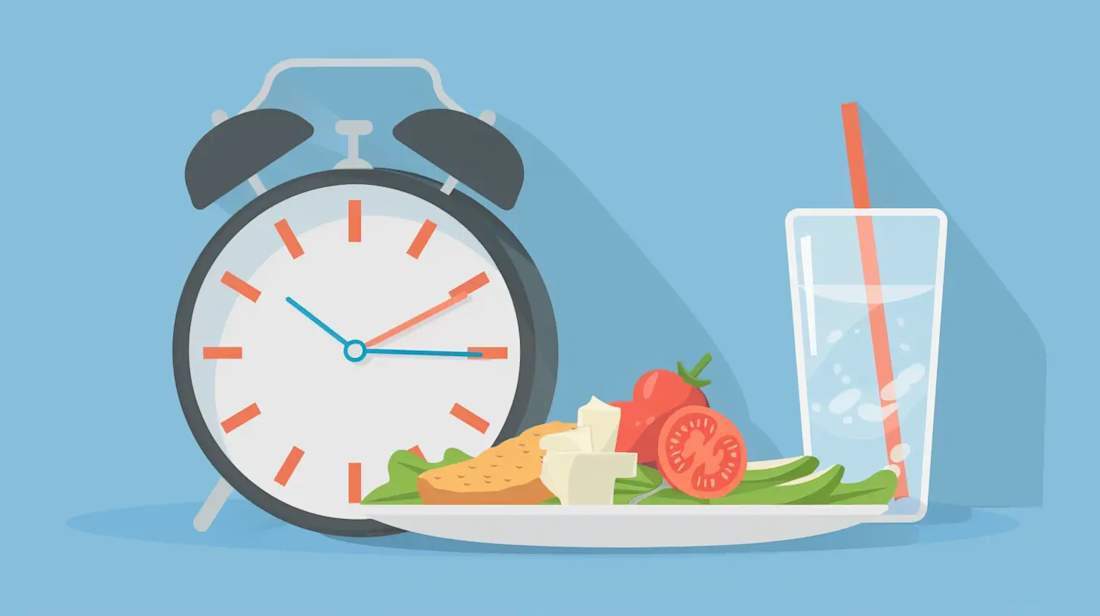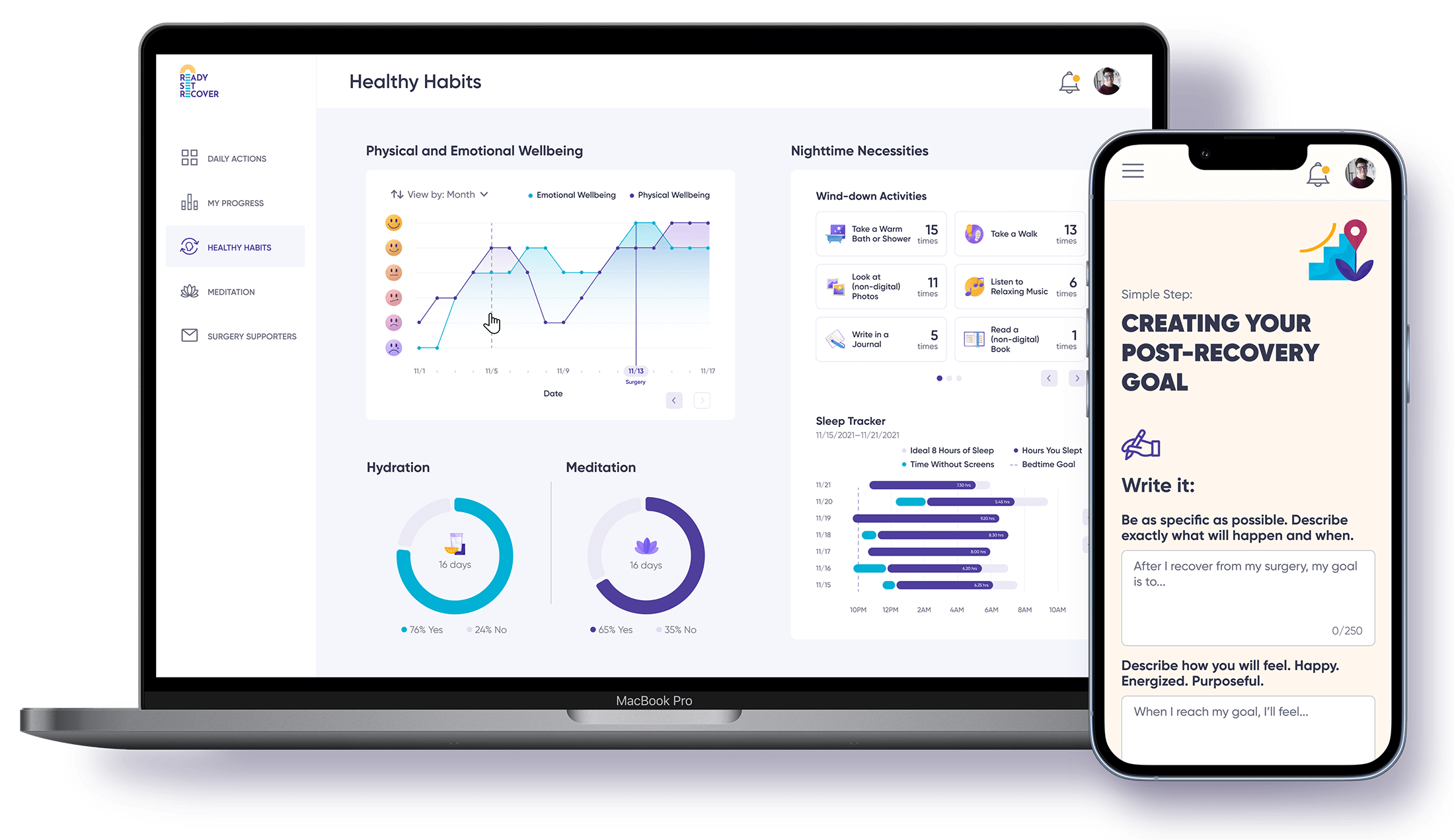Why Can't You Eat Before Surgery? Understanding Pre-Op Fasting Guidelines


Wondering “why can’t you eat before surgery?” It’s all about safety. Eating before surgery increases the risk of aspiration—the inhalation of stomach contents into the lungs—which can lead to serious complications under anesthesia. This article demystifies preoperative fasting guidelines and why adherence to the “why can’t you eat before surgery” rule is important for a complication-free surgery.
Key Takeaways
An empty stomach during surgery is mandated to prevent aspiration, a risk that increases under general anesthesia where protective airway reflexes are lost, potentially leading to severe lung infections.
Pre-surgery fasting times vary for solid foods and clear liquids, with at least eight hours without solid foods and a two-hour window for clear liquids before anesthesia to ensure an empty stomach and reduce complications.
Preoperative fasting guidelines differ for groups like diabetics, who must manage glucose levels during fasting, and babies, with specific fasting durations for breast milk and formula to ensure patient safety and comfort.
The Critical Reason for an Empty Stomach During Surgery

To undergo surgery or procedures involving anesthesia, it is extremely important to have an empty stomach to avert complications like nausea, vomiting, and aspiration. When a patient has food or liquid in their stomach during anesthesia, it can lead to serious risks.
Medical staff emphasize the importance of fasting before surgery to help patients understand and follow these critical guidelines. By clearly explaining why fasting is necessary, healthcare providers ensure patients understand the need to keep their stomachs empty before surgery, which ultimately contributes to a safer and more successful procedure.
Aspiration Risks with General Anesthesia
Aspiration occurs when ingested substances, such as food or drink, enter the airway. Under general anesthesia, patients lose protective airway reflexes, which means that the body can't automatically prevent substances from entering the lungs; significantly increasing the risk of developing aspiration pneumonia.
The Role of the Endotracheal Tube
The endotracheal tube plays a vital role during surgery by maintaining a clear airway. This tube is inserted into the windpipe to ensure that oxygen and anesthesia gases can be delivered directly to the lungs, keeping the patient breathing steadily throughout the procedure. It also helps keep unwanted stuff out of your lungs, reducing the risk of aspiration. But, if there's food or liquid in your stomach, the risk of aspiration goes up, even with the tube in place. The tube can make it tricky for medical staff to notice when aspiration is happening, which makes things even more complicated.
Pre-Surgery Dietary Restrictions: Timing is Everything
For elective procedures, the American Society of Anesthesiologists has revised practice guidelines for healthy individuals, detailing the differentiation between different types of food and beverages prior to surgery.
Solid Foods and Surgery Time
To keep things safe, doctors usually tell patients to stop eating solid foods at least eight hours before surgery. This is especially true for fatty, fried, or protein-rich foods, which take longer to digest and can increase the risk of aspiration during anesthesia.
Moreover, the type of anesthesia being used can influence fasting instructions. For instance, procedures involving general anesthesia typically require stricter fasting protocols compared to those using local or regional anesthesia.
Clear Liquids Countdown
Clear liquids, such as water, apple juice, and black coffee, can be consumed up to two hours before surgery to maintain hydration. Clear liquids are fluids that are transparent and free of solids and pulps, making them easier to digest and less risky than solid foods.
To minimize surgery risks, patients should stop consuming even clear liquids two hours prior to anesthesia administration. Examples of acceptable clear liquids include:
water
apple juice
Gatorade
black coffee
tea without milk or cream
clear electrolyte-replenishing drinks
Navigating Pre-Op Fasting for Different Patient Groups
Pre-operative fasting guidelines are not one-size-fits-all. They are tailored to accommodate variations among different patient groups, such as healthy individuals, babies, and those with medical conditions like diabetes.
In some cases, in addition to an empty stomach, bowel preparation may be necessary, such as before GI surgery to empty the gastrointestinal tract and reduce the risk of complications. This process usually involves taking a special solution or laxatives to clear out the intestines. While it might sound a bit uncomfortable, it's a crucial step to ensure everything goes smoothly during the procedure. Think of it as giving your digestive system a fresh start before the big day!
Special Considerations for Diabetics
For diabetic patients, fasting needs a bit of extra attention to keep blood sugar levels in check and avoid issues like high or low blood sugar, or even ketoacidosis. In some diabetics, the passage of food through the stomach may be slower than in non-diabetic people. It's incredibly important to keep an eye on your blood sugar levels before surgery—think about doing a finger stick glucose check every 4 to 6 hours if you're not eating.
If you're a Type 1 diabetic, don't skip your basal insulin. Keeping that steady insulin flow is key to avoiding diabetic ketoacidosis.
If your blood sugar drops, you can have some clear, pulp-free juice or non-diet soda. Just make sure to do this up to two hours before your surgery time.
Moreover, diabetics should consult with their healthcare team to adjust their insulin or oral hypoglycemic medication doses as needed. This consultation is crucial for creating a tailored plan that ensures blood sugar levels remain stable throughout the fasting period and the surgery itself. For instance, some patients may need to adjust their long-acting insulin the night before surgery, frequently taking less than they normally take, while others might require a reduced dose of their morning medications because they are consuming fewer calories due to their upcoming surgery..
Additionally, it’s a good idea to carry a glucose monitoring device and fast-acting glucose sources, like glucose tablets or gel, to quickly address any unexpected drops in blood sugar levels. Keeping a detailed log of blood sugar readings and any symptoms can also be helpful for the medical team to make any necessary adjustments.
Guidelines for Babies

For babies, the fasting rules change depending on whether they're drinking breast milk or formula. Breast milk is easier on their small stomachs and digests faster than formula, which is why the fasting times are different. If your baby is on breast milk, they usually only need to fast for about four hours before anesthesia.
On the other hand, formula takes longer to digest because it's more complex. So, if your baby is drinking formula, they should fast for at least six hours before getting anesthesia to make sure their stomach is empty.
It's also worth noting that the guidelines can vary slightly based on the specific recommendations of your healthcare provider or anesthesiologist. In some cases, they might advise a shorter or longer fasting period depending on the baby's health condition or the type of surgery being performed. Additionally, keeping your baby calm and comfortable during the fasting period is crucial. Distractions like playing with toys, reading books, or going for a walk can help make the fasting period more manageable for both the baby and the parents.
Parents should also be prepared for any potential changes in the surgery schedule, which might extend the fasting period. In such scenarios, it's important to follow the medical team's instructions closely to ensure the baby's safety.
What Can You Eat Before the Fasting Period Begins?

Optimal Nutrition for Healing
In the days and weeks leading up to surgery, the idea is to get your body optimally prepared. One great way to do that is by fueling yourself with benificial nutrients. Eating lean, protein-rich foods like:
pork
chicken
seafood
tofu
beans
low-fat dairy
are not only rich in protein but also provide essential nutrients that support overall health and recovery. For instance, chicken and pork are excellent sources of lean protein that help in muscle repair and growth. Seafood, particularly fatty fish like salmon and mackerel, is rich in omega-3 fatty acids, which have anti-inflammatory properties that can aid in reducing post-surgery inflammation.
Tofu and beans are fantastic plant-based protein options, making them suitable for vegetarians and vegans. They are also high in fiber, which can help maintain digestive health during the pre-surgery fasting period. Low-fat dairy products like yogurt and milk provide calcium and vitamin D, which are crucial for bone health and can support the body's healing processes.
In addition to these protein-rich foods, consider incorporating whole grains, fruits, and vegetables into your diet leading up to surgery. Whole grains like brown rice, quinoa, and whole wheat bread offer sustained energy and are packed with essential vitamins and minerals. Fruits and vegetables are rich in antioxidants, vitamins, and minerals that boost the immune system and promote healing. For example, berries are high in vitamin C, which is vital for collagen production and wound healing, while leafy greens like spinach and kale provide iron, which is essential for maintaining healthy blood levels.
Staying hydrated is equally important. Staying well-hydrated by drinking plenty of water and eating hydrating foods like cucumbers, watermelon, and oranges can help prepare your body for surgery. Proper hydration supports all bodily functions, including nutrient transport and waste elimination, which are critical for recovery.
By focusing on a balanced diet rich in protein, whole grains, fruits, vegetables, and adequate hydration, you can prepare your body for the fasting period and support a smoother, more effective recovery post-surgery.
The Last Meal Before Surgery: Light Meal Recommendations
Just prior to surgery, it's a good idea to still get some nutrition, but to consume a meal on the lighter side. Some good options include:
soup
salad
toast
crackers
a bowl of cereal
yogurt with fruit
a smoothie
a small serving of pasta
a piece of fruit like an apple or banana
a light sandwich with lean protein
It's really important to avoid heavy meals, especially those that are fried, fatty, or protein-rich, at least eight hours before your surgery because they take longer to digest and could increase the risk of complications. These types of foods can linger in your stomach, making it more difficult for your body to process them before your procedure. As a result, they can increase the likelihood of aspiration and other anesthesia-related complications.
Moreover, consuming a heavy meal can also lead to increased stomach acid production, which can further elevate the risk of regurgitation and aspiration during surgery. This is why medical professionals emphasize the importance of adhering to fasting guidelines. By opting for lighter meals and following the recommended fasting period, you can help ensure a smoother and safer surgical experience.
Remember, the goal is to minimize risks and promote a positive outcome, so avoid junk food and overeating, and stick to whole foods in small portions.
Following these tips can help make your surgical experience a lot smoother and more comfortable.
Communication with Your Medical Staff

Talking openly with your medical team is important for understanding why you need to fast before surgery and keeping you safe. Most people aren't told why fasting is so crucial, which can make it harder to stick to the rules.
If you happen to eat before surgery, your care team might reschedule your surgery to make sure your stomach is empty to ensure you have a safe procedure. If you happen to forget the guidelines and eat too close to your surgery time, be honest about it. It's for your own safety. By keeping the lines of communication clear, you’ll have a better grasp of the fasting guidelines, making your surgery experience much smoother. Lastly, anesthesia may ask that certain medicines be taken just before surgery by mouth with a small amount of water. These medicines are used to reduce the acid produced by the stomach and/or quicken the passage time of any food products that may be remaining in the stomach. Both of these actions will lessen the likelihood of aspiration.
Summary
Understanding the importance of preoperative fasting is crucial for ensuring a safe and successful surgical experience. By adhering to fasting guidelines, patients can prevent complications such as nausea, vomiting, and aspiration, ensuring their safety during anesthesia and surgery. Different patient groups, including diabetics and children, have specific fasting guidelines tailored to their needs.
Optimal nutrition and hydration before the fasting period can support healing and recovery post-surgery. Clear communication with the care team and adjusting medications as needed are essential steps in preparing for surgery. By following these guidelines, patients can approach their surgery with confidence and peace of mind, knowing they are taking the necessary steps for a successful outcome.
Frequently Asked Questions
Why is it important to have an empty stomach before surgery?
It is important to have an empty stomach before surgery to prevent complications such as nausea, vomiting, and aspiration, ensuring patient safety during anesthesia and surgery.
What are the fasting guidelines for solid foods before surgery?
Before surgery, it's best to avoid consuming solid foods for at least eight hours to minimize potential safety risks, particularly foods high in fat, protein, or fried. This helps ensure a safer surgical experience.
Can I drink clear liquids before surgery?
Yes, you can drink clear liquids like water, apple juice, and black coffee up to two hours before surgery to stay hydrated.
What are the fasting guidelines for babies?
Babies consuming breast milk should fast for at least four hours before anesthesia, while those consuming formula milk should fast for a minimum of six hours. It's important to follow these guidelines to ensure the safety of the child during anesthesia.
How should diabetic patients manage their blood glucose before surgery?
Diabetic patients should carefully monitor their blood glucose levels, adjust insulin delivery, and consult with their healthcare team to avoid complications such as hyperglycemia or hypoglycemia. This will help ensure a safe surgery and recovery.






